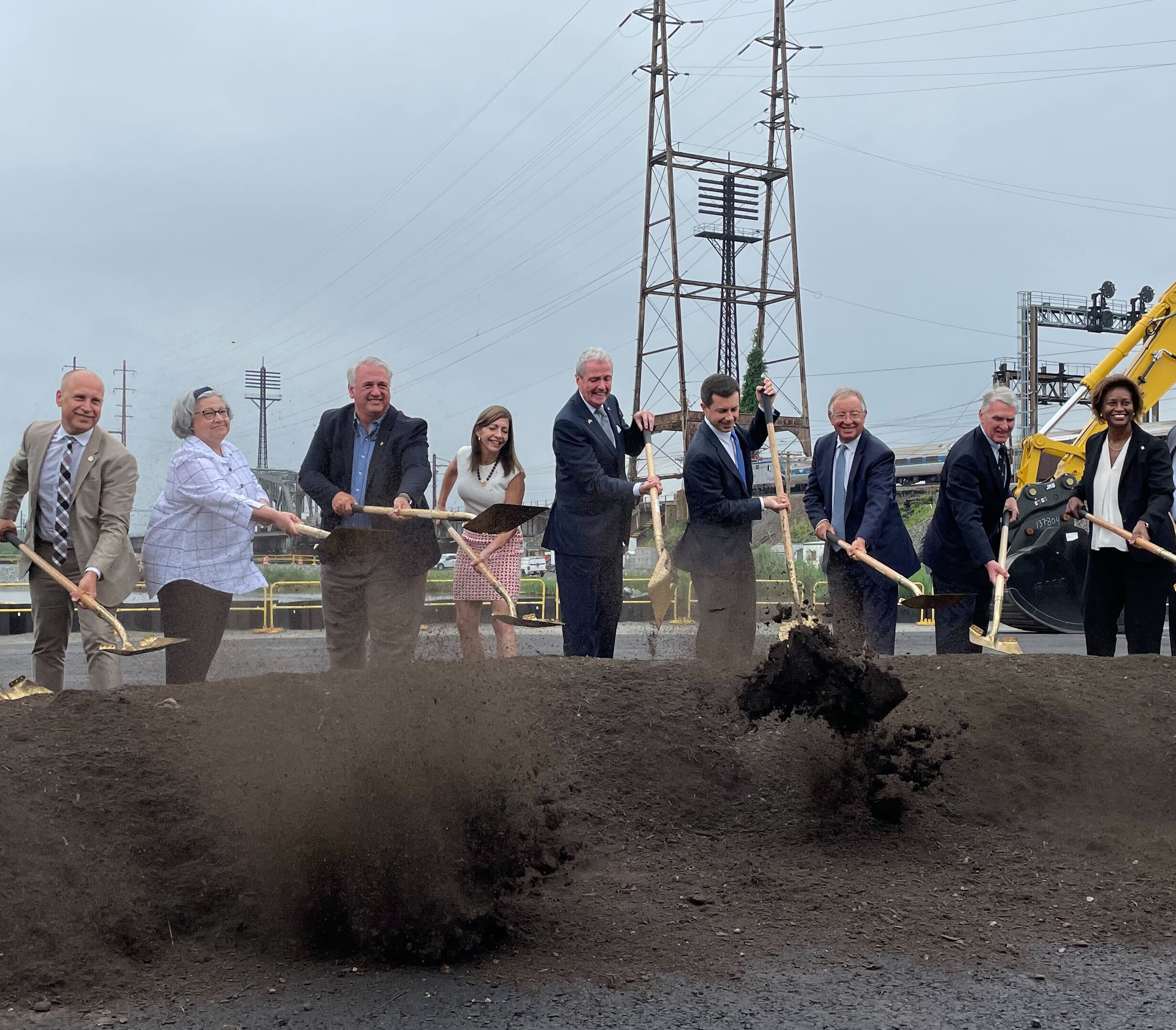At long last, Secretary of Transportation Pete Buttigieg has broken his legendary silence on congestion pricing — and said, more or less, "Don't blame the feds!"
Buttigieg, who was in town for the latest move forward in the Gateway project — a groundbreaking on the new Portal North Bridge in New Jersey — last faced the New York City transit press corps in June 2021 for a different Gateway event and dashed through Penn Station to avoid questions on congestion pricing. This time the secretary spent some time with the press and realized we weren't so bad — and it wasn't because the reporters who made it out to the Jersey swamps didn't put him to the test.
This morning we put shovels in the ground. With this vital infrastructure project, @SecretaryPete and I are confident that we will have a safer, more reliable Portal North Bridge – not just for NJ residents and commuters, but for the entire nation.
— Governor Phil Murphy (@GovMurphy) August 1, 2022
🌉 https://t.co/HMpAiClvVz pic.twitter.com/Cnq3ROQfG4
Twice, Buttigieg was asked about federal government's role in the ongoing effort to implement congestion pricing in New York City, a role that through two presidential administrations has seemed to be more gatekeeper than usher. Under the Trump administration, the program couldn't move forward at all of course, but after the Biden administration at least let the environmental review process begin, the initial 16-month timeline has become a 17-month timeline after the Federal Highway Administration asked so many technical questions.
Asked if the entire review process was out of whack — and why it needed to take so many months to conduct an environmental review for a proposal that's been proven to reduce pollution and congestion around the world, the secretary first deflected by saying there were no politics at play this time around.
"One thing I can tell you, there's definitely no politics in this NEPA process," said Buttigieg, using the jargony initials for the National Environmental Policy Act, the federal law ensuring that the public gets a voice whenever environmentally questionable proposals, like power plants or mining permits, are on the table. "I know there's a collaborative approach right now going on between the Federal Highway Administration and project sponsors. I have a lot of confidence that that process will get worked through in an effective way. It's very important to us to make sure that, of course, every legal requirement is met, but also that there are no unnecessary obstacles to what local project sponsors seek to do."
Buttigieg was also pressed specifically on the 400 technical questions that the FHWA sent to the MTA, a list of questions that so annoyed MTA Chairman and CEO Janno Lieber that he kicked up a fuss over them. But Buttigieg stuck to his guns that the federal government wasn't there to promote or hinder a project, but instead to make sure things don't get out of hand.
"Our role is simply to make sure that all of the federal requirements are met and when you're talking about something that is really the first of its kind at this scale, as consequential as it is, you want to make sure that it's buttoned up," he said. "But ultimately, it's still local project sponsors who decide whether it's a good project — and our role is simply procedural. When a community or a set of communities decides they want to do something, we view our role as simply making sure that it's coloring within the federal lines and we have a lot of communication going on, because the point of the questions is to get answers to the questions, not to get in the way of something."
It's a little Uatu the Watcher for our taste, but it's an answer.






